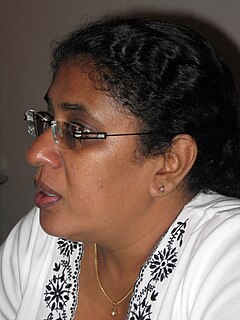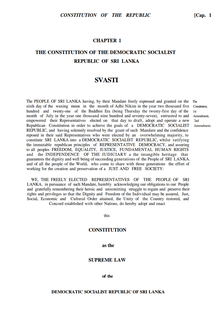The Courts of England and Wales, supported administratively by Her Majesty's Courts and Tribunals Service, are the civil and criminal courts responsible for the administration of justice in England and Wales.
The Supreme Court of the State of New York is the trial-level court of general jurisdiction in the New York State Unified Court System. It is vested with unlimited civil and criminal jurisdiction, although outside New York City it acts primarily as a court of civil jurisdiction, with most criminal matters handled in County Court.

The term magistrate is used in a variety of systems of governments and laws to refer to a civilian officer who administers the law. In ancient Rome, a magistratus was one of the highest ranking government officers, and possessed both judicial and executive powers. In other parts of the world, such as China, a magistrate was responsible for administration over a particular geographic area. Today, in some jurisdictions, a magistrate is a judicial officer who hears cases in a lower court, and typically deals with more minor or preliminary matters. In other jurisdictions, magistrates may be volunteers without formal legal training who perform a judicial role with regard to minor matters.

The Judicial Yuan is the judicial branch of the government of the Republic of China on Taiwan.

The courts of Scotland are responsible for administration of justice in Scotland, under statutory, common law and equitable provisions within Scots law. The courts are presided over by the judiciary of Scotland, who are the various judicial office holders responsible for issuing judgments, ensuring fair trials, and deciding on sentencing. The Court of Session is the supreme civil court of Scotland, subject to appeals to the Supreme Court of the United Kingdom, and the High Court of Justiciary is the supreme criminal court, which is only subject to the authority of the Supreme Court of the United Kingdom on devolution issues and human rights compatibility issues.

The High Court of Justice in England is, together with the Court of Appeal and the Crown Court, one of the Senior Courts of England and Wales. Its name is abbreviated as EWHC for legal citation purposes.
Justice Ameer Ismail is a retired Judge of the Supreme Court of Sri Lanka and a former Chairman of the Commission to Investigate Allegations of Bribery or Corruption, Sri Lanka.

The Supreme Court of Mauritius is the highest court of Mauritius and is the final court of appeal in the Mauritian judicial system. It was established in its current form in 1850, replacing the Cour d'Appel established in 1808 during the French administration and has a permanent seat in Port Louis. There is a right of appeal from the Supreme Court of Mauritius directly to the Judicial Committee of the Privy Council in London.
Rohini Perera Marasinghe is a Sri Lankan judge and lawyer. She was a sitting judge on the Supreme Court of Sri Lanka. Prior to her appointment as Puisne Justice of the Supreme Court of Sri Lanka, in April 2013, she served as a judge of the Court of Appeal and was promoted to fill the vacancy created by the retirement of Justice S. I. Imam.
The Judiciary of Sri Lanka are the civil and criminal courts responsible for the administration of justice in Sri Lanka. The Constitution of Sri Lanka defines courts as independent institutions within the traditional framework of checks and balances. They apply Sri Lankan Law which is an amalgam of English common law, Roman-Dutch civil law and Customary Law; and are established under the Judicature Act No 02 of 1978 of the Parliament of Sri Lanka.

The Judiciary of Sierra Leone is the branch of the Government of the Republic of Sierra Leone which interprets and applies the laws of Sierra Leone to ensure impartial justice under law and to provide a mechanism for dispute resolution. The independence of the judiciary is guaranteed by the constitution.
Justice Sarath de Abrew was a Sri Lankan judge and lawyer. He was a judge of the Supreme Court of Sri Lanka.
Justice Hettikankanange Nalin Jayalath Perera is a Sri Lanka judge. He is the 46th and current Chief Justice of Sri Lanka. He is due to retire in February 2019.
Kulahath Sisira Jayawilal de Abrew is a sitting Puisne Justice of the Supreme Court of Sri Lanka who was appointed by President Mahinda Rajapaksa in 2014 to replace Justice Nimal Gamini Amaratunga. In May 2016 de Abrew was appointed to the Judicial Service Commission by President Maithripala Sirisena.
The Magistrate's Courts in Sri Lanka is a lower court headed by a Magistrate who is vested with original criminal jurisdiction.

The Supreme Court of the Gambia is a superior court of record and the highest court in The Gambia. Established in 1851, it has appellate and original jurisdiction over any law exceeding the powers conferred by the Constitution or any law upon the National Assembly or any other person or authority.
Justice Prasanna Sujeewa Jayawardena, PC is a Sri Lankan judge and lawyer. He is a sitting puisne judge of the Supreme Court of Sri Lanka, prior to which he was senior member of the Unofficial Bar.











